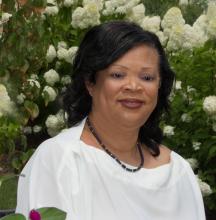To Be Female, Anxious and Black
To Be Female, Anxious and Black

Anxiety disorders are the most common mental health disorder in the United States. Data show that for Black women, anxiety is more chronic and the symptoms more intense than their White counterparts. This description, however, only tells half the story. What it does not tell us is how anxiety is perceived and experienced daily by Black women.
Images of Black Women
To fully understand anxiety and Black women, we must understand how Black women are viewed in this country. Research and history tell us that three basic images exist-the Strong Black Woman, the Angry Black Woman, and the Jezebel/Video Vixen. These images affect how other people see Black women and how they see themselves. They also play a role in the development and maintenance of anxiety.
Strong Black Women are legendary. Harriet Tubman, Sojourner Truth, and every Black grandmother is renowned for her persistence and perseverance. There are many positive aspects about being a Strong Black Woman, but there are negatives as well. A Strong Black Woman “keeps on keeping on “even when she knows she should stop, placing her mental and physical health at risk.
An Angry Black Woman will “cuss” you out before hearing you out. Tyler Perry’s Madea is a classic example of the Angry Black Woman. Our work with these women has found that many of them are anxious. The anger is an outward expression of their discomfort with negative affect associated with anxiety.
The Jezebel/Video Vixen represents the sexualized Black woman. The term Jezebel comes from the Biblical Queen who turned her husband against God. Since slavery, Black women have been sexualized in derogatory ways, often represented in rap and hip-hop videos. Black women, particularly professional Black women work hard to dispel the Jezebel/Video Vixen image.
Social Anxiety
In workplaces, college and professional school settings around the country, Black women often find themselves the only one or the first one. In these situations, they have been taught that they have to be twice as good to go half as far, that they are representing the race and that they are being watched more closely than their white counterparts; beliefs that are not necessarily inaccurate. These beliefs coupled with the Strong Black Woman image increase risk for social anxiety.
Another social anxiety risk factor in the workplace and college/graduate/professional school setting is the acting white accusation. As the images attest, far too often we forget that there are more than three (3) ways to be a Black woman in this country. The acting White accusation, has nothing to do with wanting to be White and everything to do with what it means to be Black. In other words, it is an attack on one’s racial identity which in turn, can create anxiety.
PTSD
The rate of sexual assault among Black women is 3.5 times higher than that of any other group in this country. Black women are also less likely to report their assault. Many suffer in silence for years, never sharing with anyone what has happened to them. Thus, the trauma remains unnamed, unknown and untreated and the symptoms worsen.
Racism is a form of trauma that disproportionality affects Black women (and men). Trauma in the form of racism can be directly or indirectly experienced. Driving while Black, shopping while Black, and everyday racial micoraggressions are direct examples of racial trauma. The most common indirect examples are the viral videos of unarmed Black women and men being killed. Vicariously witnessing race-based trauma, can be as devastating as the direct form.
Help Seeking
Slowly, the stigma associated with seeking help for anxiety is disappearing. Women have begun to understand that an anxious Black woman is not crazy, she is simply anxious and with assistance can reclaim her life. Black women who seek help want a therapist who understands their issues. Imagine telling you someone you are tired of being a strong Black woman and they recommend you stop working out. It’s happened! Therefore, it is important that therapists enhance their cultural competence and be open to culturally adapting anxiety interventions. Cultural competence involves, but is not limited to, familiarity with stereotypical images of Black women, racism as trauma and the acting white accusation. Cultural adaptation can include assessment and discussion of racial trauma and the deconstruction of images of Black women.
Another form of cultural adaptation involves how an intervention is delivered. In our program, we use sister circles, an indigenous form of healing. Within the circles, we adapt CBT for a Black female populations. As example, rather than use cognitive restructuring to replace erroneous thoughts, we teach musical cognitive restructuring. Research has found both the method and content to be feasible and effective.












